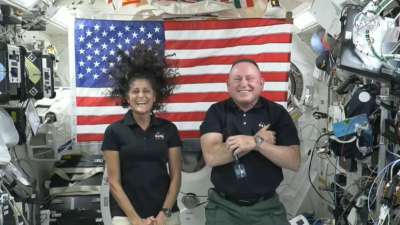New Delhi: NASA is expected to take a final decision Saturday to bring Sunita Williams and Butch Willmore back to Earth on Boeing’s Starliner spacecraft or on SpaceX’s Dragon capsule, the US space agency said.
“NASA’s decision on whether to return Starliner to Earth with astronauts aboard is expected no earlier than August 24 (Saturday) after an agency-level review,” the space agency said in a statement.
What began as an eight-day sojourn on the International Space Station (ISS) has extended to more than two months in space for Williams and Willmore — the duo who became the first to ride the much-delayed Starliner.
As Starliner approached the orbiting lab, the spacecraft experienced a series of technical issues such as the failure of several thrusters and helium leaks in the propulsion system.
While engineers were able to bring four of the five malfunctioning thrusters back online (there are 28 thrusters on Starliner), it still raises a concern about “a successful de-orbit” to Earth.
Although Boeing proclaimed the safety of Starliner, NASA officials have disagreed.
If the US space agency deems Starliner unfit to travel Saturday, it would undock uncrewed from the orbiting lab.
Williams and Wilmore will return onboard a SpaceX Dragon capsule in February 2025, as NASA has delayed the launch of the SpaceX Crew-9 mission to the ISS to September 24.
After many setbacks for years, Boeing launched its first flight June 5.
Together with SpaceX, the company signed a contract in 2014 with NASA’s Commercial Crew Programme to fly operational missions to and from the space station.
In 2019, its debut uncrewed orbital flight mission did not go as planned. The mission was completed in 2022.
SpaceX’s Dragon capsules have been launching astronauts to space on its Falcon 9 rockets since 2020. It has so far aced about 12 flights to the Space Station.
While Boeing has poured over $1.5 billion into its Starliner programme, NASA has paid the aerospace giant about $4.2 billion over the years.
Both Boeing’s Starliner and SpaceX’s Dragon were aimed to ferry astronauts and cargo for NASA missions to low Earth orbit, the Moon, Mars, and beyond.
